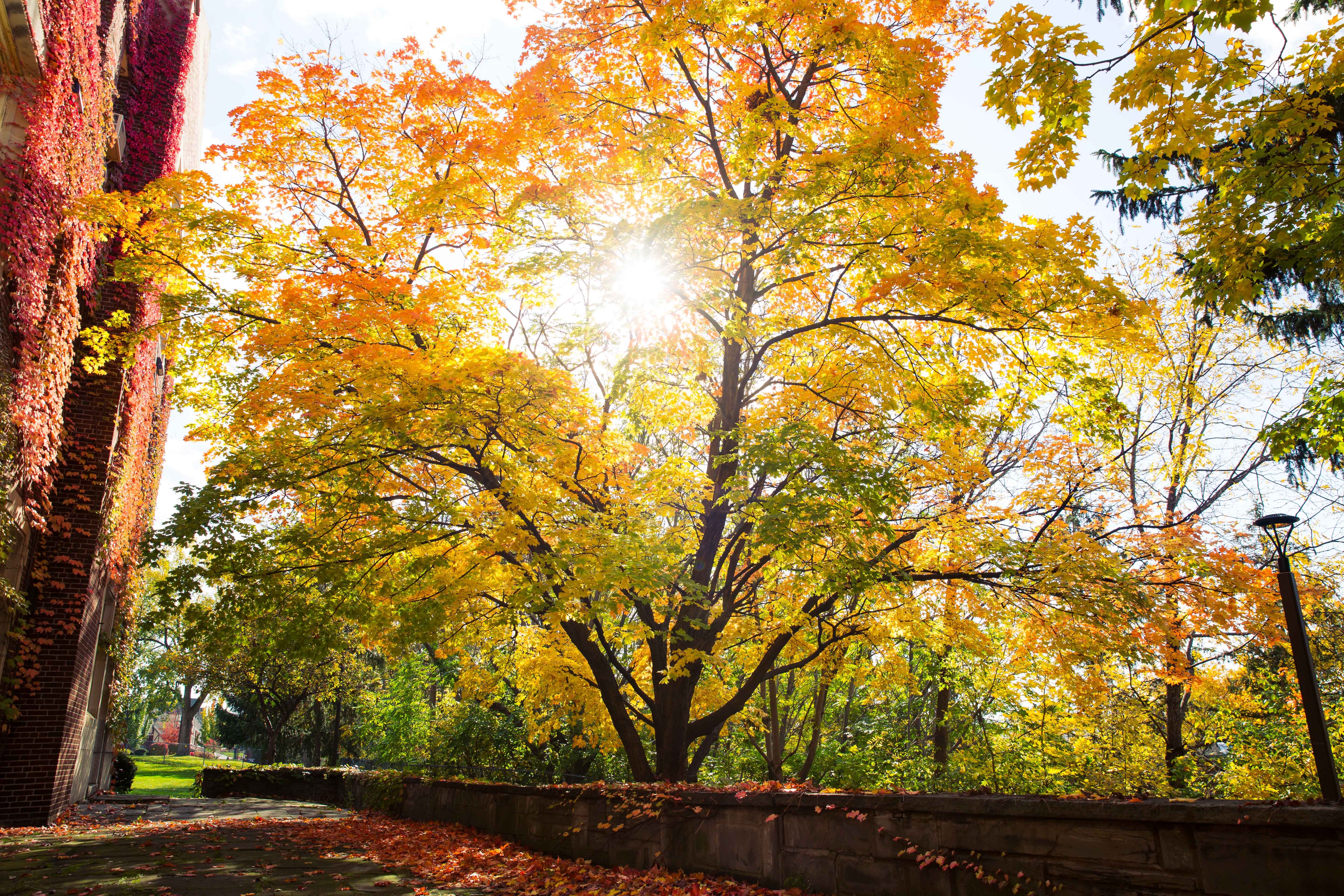Nawang Sherpa ’20 struggled to excel in his first year at Geneseo. It inspired him to explore his roots and prepare other Sherpa-Americans for the college experience.
By Kris Dreessen
Nawang Sherpa’s parents immigrated to Queens, N.Y., from rural Nepal. As he grew up, the family focused on adapting to life in America and ensuring Sherpa could excel in school, American culture and new opportunities, like attending Geneseo.
Sherpa graduated with a degree in communication in May. He was president of the Himalayan Student Association and a peer mentor in the Office of Career Development.
But it wasn’t easy. And he didn’t know much about his heritage.
“Transitioning from high school to college was challenging,” says Sherpa. “The course work is more difficult and faster-paced. There was pressure to choose a major. Many first-year students feel this way, especially first-generation students, who are the first in their families to attend college. Their families don’t have experience with college culture for them to draw support from.”
Overcoming those challenges inspired Sherpa to discover more of his culture — and to help other young Sherpa-Americans visualize college dreams, too. As the 2019 John A. ’87 and Mary Grace ’84 Gleason Ambassador in Student Affairs, Sherpa designed a three-part, immersive project in Nepal, Geneseo and Queens.
After spending six weeks in the Sherpa region of Nepal, he collaborated with the Office of Admissions and the United Sherpa Association in Queens to bring seven first-generation, Sherpa-American high school juniors and seniors to campus. They spoke with Geneseo students from diverse backgrounds and stayed overnight with a student host. He later led workshops in Queens on resume-writing and other professional skills.
“I wanted to show them another option besides New York City schools,” says Sherpa, “and let them know what opportunities and expectations there are at Geneseo.”
Q: What inspired you to keep going when it was difficult as a first-year student?
A: “I believe success depends on how you are able to cope with these experiences. I took just two courses to dedicate time to adjust to the academics. I talked to friends. My motivation was to be the first in my family to graduate from college. I learned understanding yourself and what brings the best out of you is the best way to find that success.”
Q: Why was spending a full six weeks in Nepal important?
A: “I had lost a sense of my own Sherpa culture. My parents would talk about food and life and I wanted to discover my own Sherpa identity. Immersing myself was the only way to truly understand.”
Q: Your family is from Solukhumbu, where Sherpa culture originated. What was that like?
A: “There are no cars. My guides were two uncles I had never met. We walked everywhere, for miles. I learned about daily life and the challenges families face. We stayed at my grandmother’s house and stayed overnight at the Thupten Chöling Monastery. Sherpa families that can’t afford to send their kids to school send them to the monastery, where they are taught the practices of a Tibetan Buddhist monk in exchange for schooling and room and board. That and having deep conversations with my uncles as we walked were the most memorable. I will hold those six weeks with me for the rest of my life.”
Q: How has your new understanding of your heritage been useful in your work with Sherpa-American teens?
A: “It has allowed me to highlight teachings of Sherpa culture. It’s enabled me to better connect with first-gen Sherpa teenagers, culturally. I, too, understand what it feels like to grow up away from your culture.”
Q: How did the student ambassadorship change you?
A: “It allowed me to be the voice of what I created. I became a better leader and took the initiative to make things happen. I turned my challenges into a transformational experience for myself and others.”










